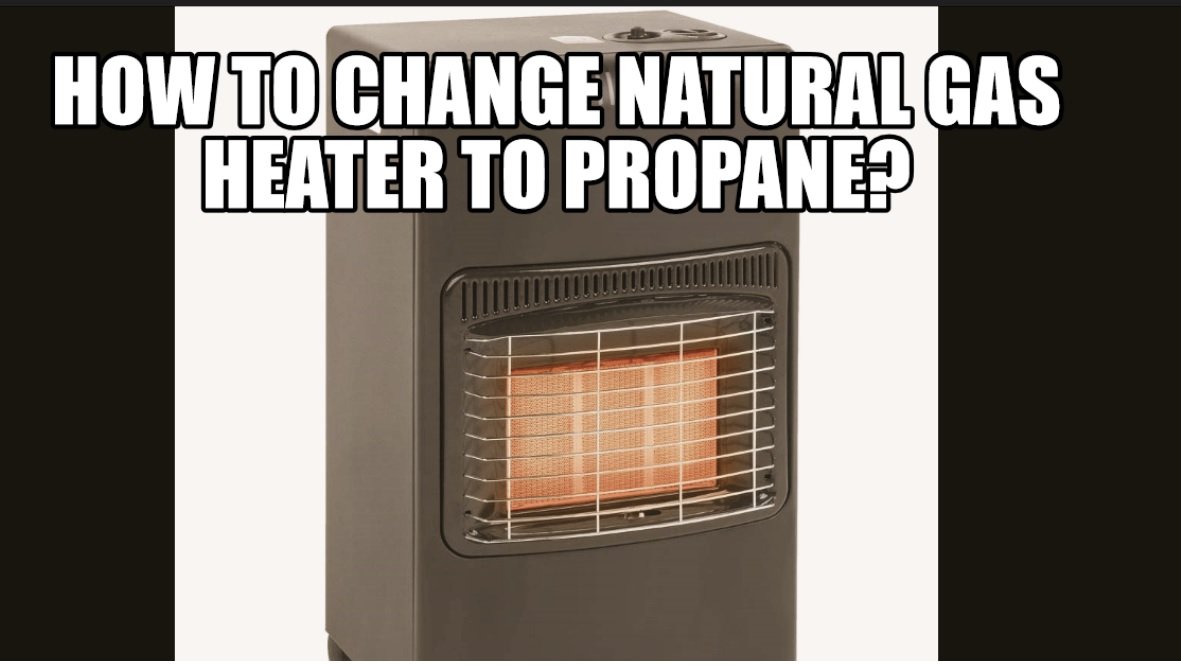Converting Natural Gas Heater to Propane
If you’re considering converting your natural gas heater to propane, it’s important to discuss the issue with a local propane dealer. Propane may be more expensive than natural gas, but it also has fewer leaks than natural gas and is easier to get rid of in an emergency situation. So if you’re planning ahead for this winter and want to save money on fuel costs—or have concerns about safety—converting from one type of heating system to another might be worth doing sooner rather than later.
Call a local propane dealer and discuss your needs with them
If you’re ready to make the switch, the first thing you should do is call a local propane dealer. They will help determine what system would work best for your needs and whether it is economical to convert from natural gas to propane. They can also explain how to convert your current heating system and give advice on how best to install an entirely new one if needed.
How to change natural gas heaters to propane? There are some costs associated with this conversion, but depending on many factors such as the condition of your home’s current boiler or furnace (or other existing fuel-burning appliance), size of unit being replaced, etc., it may be possible for someone who does home repairs or plumbing work for a living (or even yourself) in order to save some money before calling up professionals like us!
Installing a conversion kit
If you’re thinking about converting from conventional gas to propane, then be sure to call a local propane dealer for help. There are different methods of converting conventional gas to propane, including installing a conversion kit. Remember that there are different methods of converting conventional gas to propane, including installing a conversion kit.
Replace your natural gas heater with a high-efficiency model (HE)
If your natural gas heater is still working, it might be time to consider replacing it. Older models are less efficient than newer units and can cost you more money over time. High-efficiency models use less energy and produce less pollution than older units, making them an environmentally friendly alternative for your home or business.
The initial cost of a high-efficiency model can be higher than that of an older unit, but the savings from lower operating costs will balance out over time. If you want to get started on saving money and living more sustainably at home, consider installing a new high-efficiency heater today!
Upgrade your existing unit with an electronic ignition system; gas is ignited by a pilot light
Upgrade your existing unit with an electronic ignition system; gas is ignited by a pilot light.
- What is an electronic ignition system?
An electronic ignition system, also known as a hot surface ignitor (HSI), uses electricity to ignite the gas rather than lighting it with a pilot light. It provides instant ignition and eliminates the need for hand-holding a lit match or lighter to get the flue burning properly.
- How does it work?
The HSI senses when you turn on your furnace and then automatically ignites the burner unit in less than one second flat! This results in improved efficiency and faster recovery from cold weather startups—which means lower fuel bills all year long!
Install supplemental heaters or floor space heaters (FSHs) connected to your existing system
How to change natural gas heater to propane? You can also supplement natural gas heat with portable or floor space heaters. Portable supplemental heaters, like wall-mounted units or radiant floors, are more efficient than stand-alone supplemental heaters because they don’t require ductwork and can be installed in unused areas of your home. Floor space heaters (FSHs) are also an option for supplementing natural gas heating systems. These devices are typically installed in the floor and operate by warming up the room through convection currents that circulate inside the house. FSHs are often connected to existing systems and provide extra warmth throughout your home when temperatures drop below 68 degrees Fahrenheit (20 degrees Celsius).
Install under-floor heaters (UFHs) for radiant floor heating
If you’re building a new home, consider installing under-floor heaters. Under-floor heating is more efficient than forced-air systems because it uses less energy to heat your home, and it’s also gentler on your body.
UFHs are installed beneath the floor, so they don’t take up as much space as FSHs do in an attic or on a floor above the living area of your house. These systems can be installed in existing homes, too—they just require that you install an access panel in the flooring to access the wires and pipes running beneath those surfaces. This feature makes installation less expensive than installing a brand new furnace system into an existing home or business building; plus, under-floor heating requires very little maintenance once it’s set up properly!
Attach space heaters to your furnace air handler
- Attach space heaters to your furnace air handler. Space heaters are more efficient than baseboard heaters, so they might be a better option if you want to save money on heating costs. They can also be used in rooms other than the living room—for example, if you have a garage that needs warming up during the winter months, a high-quality heater would be perfect for that space.
In general, it’s best to consult with an expert before making any major changes to your home’s HVAC system (including changing from natural gas heating to propane). This is especially true if you’re planning on replacing an older system with one that uses solar energy or geothermal technology; there may be additional components involved beyond just installing something new like this and connecting it properly!
There are numerous ways to convert natural gas to propane without having the problem again next year, or even this winter
How to change natural gas heater to propane? If you’re looking for a way to convert your natural gas heater, there are numerous ways to do so. You’ll need to contact a local propane dealer and discuss what your needs are.
It might be possible for them to install a conversion kit that would allow you to use propane instead of natural gas. There are also other methods that they can use depending on the type of heater you have, including installing an entirely new system in its place if necessary.
Remember that it’s important not only that you choose the right method when converting conventional gas, but also make sure that any equipment used during installation is certified by authorities such as local fire departments or building codes offices in order ensure safe operation after installation has been completed
Conclusion
There are numerous ways to convert natural gas to propane without having the problem again next year, or even this winter. If you still have questions about how to convert your heater from natural gas to propane, contact a local propane dealer and ask them for help.

